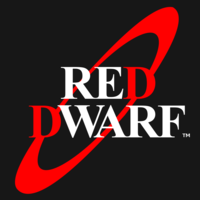
Welcome to a different kind of journal. As the title implies, this one will be concentrating on television shows, with perhaps a few movies thrown in. This will NOT be a spoiler-free zone, so be warned: if I ruin a series you're watching then you only have yourself to blame.
Some series I will be reviewing episode-by-episode. Some, longer-running ones I will encapsulate by season. Within these reviews may be everything from character profiles to best quotes, from plot arc moments to best or worst episode, or perhaps even worst dressed character. I haven't really decided yet. My main sphere of interest lies in science-fiction and fantasy, so most of the reviews will be drawn from that genre, though I do watch plenty of other stuff too. I intend this to be a long term project, hopefully spanning out over years or even decades, depending on how long I live, how tolerated I am here and whether or not the world surprises us all by imploding after 2012.
I therefore won't be rushing through anything. Synopses will be long and detailed, with not only the plot of the episode/season but my own thoughts as well. If I can get clips I may feature some, though there will be nothing like the amount of videos you usually see in my own journal. So as to try to cater to most people, and not bore myself too much, I'll focus on three or four series at a time, writing maybe a synopsis of an episode for one, a profile of another, a quote list for a third, and so on. Look, I haven't really figured it all out yet, okay, so bear with me.
The main thing to keep in mind is that while these may indeed be seen as recommendations to try this or that series, I will be writing the reviews in a manner consistent with those who have already seen them, so as I say no important parts, plot strands, revelations or surprises will be kept from the reader. That's you. If you decide to read. Should you not have seen a series I feature, and decide to try it, stop after the main introduction or the chances are it'll be ruined for you. Of course you can read further, but you're taking the chance the series may end up being spoiled for you.
Comment and discussion is as always invited, though I've learned to accept this will be sporadic at best and non-existent at worst. It doesn't matter: I'm just doing this in order to try something a little different and satisfy an old and longtime desire of mine to review my favourite TV programmes somewhere. If a featured series is still running somewhere (in Ireland/UK) I'll mention that, in case anyone wants to try it.
With that in mind, the first three series I will be reviewing are three of my favourites, all with a sci-fi or fantasy component, some more than others.
 Babylon 5
Babylon 5, my second-all-time favourite drama series ever, and one of the most thoughtful, groundbreaking and influential science fiction TV dramas ever to hit the small screen.
 Red Dwarf
Red Dwarf, one of the BBC's finest. Sharp, satirical, at times side-splittingly funny comedy based in space, that made stars out of Craig Charles and Chris Barrie among others, and set the bar for sci-fi comedy, a standard that has never to my knowledge come close to being reached.
 Supernatura
Supernatural, just quite plainly and simply one of the very best ever dramas to come out of the US, originally a horror/monster series but developed into so much more.
INDEX
BABYLON 5
Introduction
Pilot Movie: "The Gathering"
Season One: "Signs and Portents"
"Midnight on the Firing Line"
"Soul Hunter"
"Born to the Purple"
"Infection"
"The Parliament of Dreams"
"Mind War"
"The War Prayer"
"And the Sky Full of Stars"
"Deathwalker"
"Believers"
"By Any Means Necessary"
"Signs and Portents"
"TKO"
"Grail"
"Eyes"
"Legacies"
" A Voice in the Wilderness, Part 1 and 2"
"Babylon Squared"
"The Quality of Mercy"
"Chrysalis"
Season Two: "The Coming of Shadows"
"Points of Departure"
"Revelations"
"The Geometry of Shadows"
"A Distant Star"
"The Long Dark"
"Spider in the Web"
"Soul Mates"
"A Race Through Dark Places"
"The Coming of Shadows"
"GROPOS"
"All Alone in the Night"
"Acts of Sacrifice"
"Hunter, Prey"
"There All the Honour Lies"
"And Now for a Word..."
"In the Shadow of Zha'dum"
"Knives"
"Confessions and Lamentations"
RED DWARF
Introduction
Season One
"The End"
"Future Echoes"
"Balance of Power"
"Waiting for God"
"Confidence and Paranoia"
"Me2"
Season Two
"Kryten"
"Better Than Life"
"Thanks for the Memory"
"Stasis Leak"
"Queeg"
SUPERNATURAL
Prologue
Season One
Pilot
"Wendigo"
"Dead in the Water"
"Phantom Traveller"
"Bloody Mary"
"Skin"
"Hook Man"
"Bugs"
"Home"
"Asylum"
"Scarecrow"
"Faith"
"Route 666"
"Nightmare"
"The Benders"
"Shadow"
"Hell House"
"Something Wicked"
"Provenance"
"Dead Man's Blood"
"Salvation"
"Devil's Trap"
Season Two
"In My Time of Dying"
Everybody Loves a Clown"
"Bloodlust"
"Children Shouldn't Play With Dead Things"
"Simon Said"
"No Exit"
"The Usual Suspects"
"Crossroad Blues"
"A Very Supernatural Christmas" (Out of sequence, posted for Christmas)
"Croatoan"
"Hunted"
"Playthings"
"Nightshifter"
"Houses of the Holy"
SPOOKS
Introduction
Season One
"Thou Shalt Not Kill"
"Looking After Our Own"
"One Last Dance"
"Traitor's Gate"
"The Rose Bed Memoirs"
"Lesser of Two Evils"
Season Two
"Legitimate Targets"
"Nest of Angels"
"Spiders"
LOVE/HATE
Introduction
Season One
Episode One
Episode Two
Episode Three
Episode Four
Season Two
Episode One
Episode Two
Episode Three
THE NEW STATESMAN
Introduction
Season One
"Happiness is a Warm Gun"
"Passport to Freedom"
"Sex is Wrong"
"Waste Not Want Not"
"Friends of St. James"
"Three Line Whipping"
"Baa Baa Black Sheep"
Season Two
"Fatal Extraction"
"Live from Westminster"










 Threaded Mode
Threaded Mode